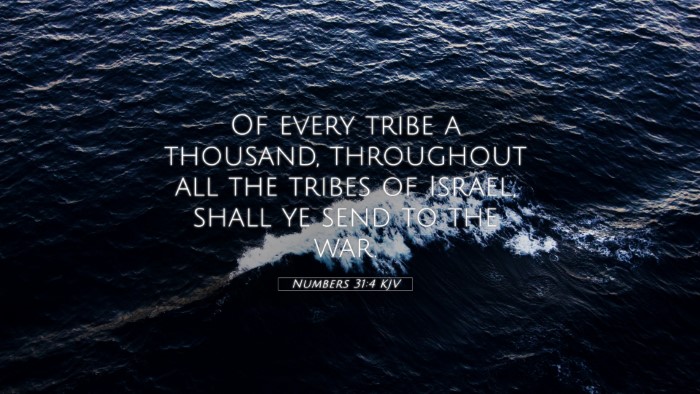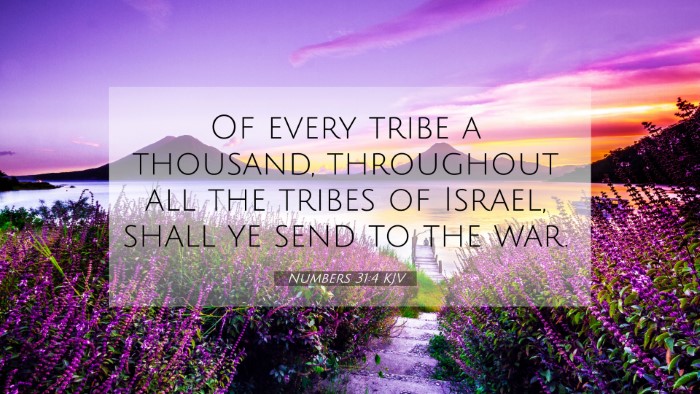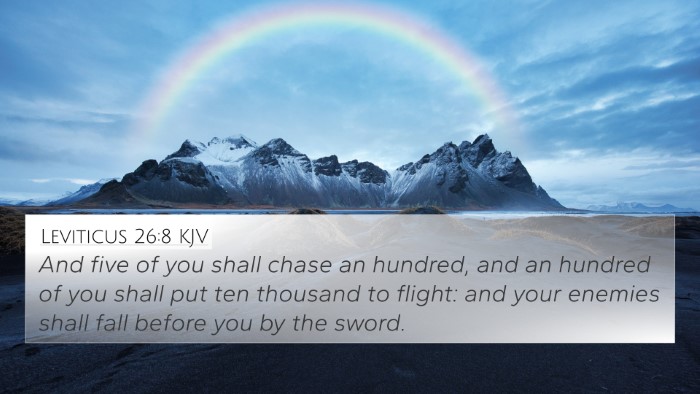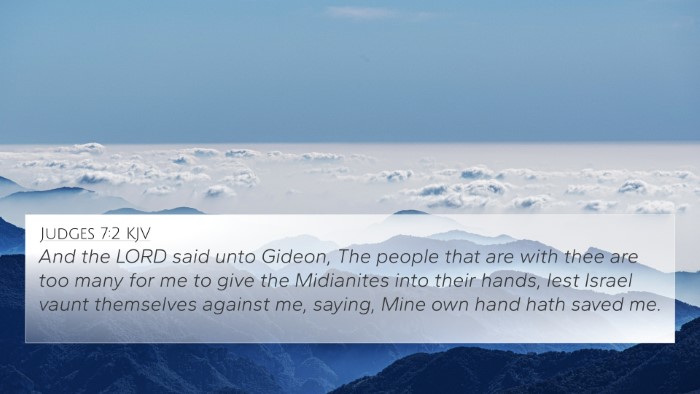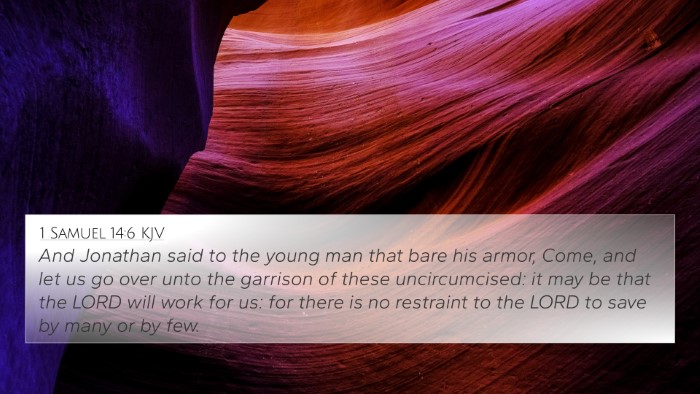Summary and Interpretation of Numbers 31:4
Bible Verse: Numbers 31:4 - "And send thousands of the men of war to the war."
This verse comes from a portion of the Book of Numbers, where the Israelites, under Moses’ leadership, prepare to take vengeance against the Midianites. The specific command given in this verse is one of military organization and preparation for a divinely sanctioned mission. Below, insights from prominent public domain commentaries are combined to provide a deeper understanding of this verse.
Insights from Commentaries
Matthew Henry's Commentary
Matthew Henry emphasizes the significance of obedience to God’s commands. This verse indicates a strategic initiative where God instructs Moses to prepare for battle. Henry suggests that God’s directive to "send thousands" symbolizes not only the need for military might but also reflects the seriousness of divine retribution against sin. He interprets the action as necessary for purging corruption from among God’s people.
Albert Barnes' Notes
Albert Barnes points out the urgency in the command given by God to Moses. He notes that the Lord’s anger was against the Midianites for their influence that led Israel into sin. Barnes highlights that the preparation for war is a consequence of human moral failures, showcasing that God was responding to wickedness and idolatry, and thus military action was justified as a means of divine judgment.
Adam Clarke's Commentary
Adam Clarke provides an analytical view of the numbers involved, stressing the military importance of sending well-organized troops. He ties the verse into the broader narrative of Israel’s journey and struggles, indicating that these orders serve as a reminder of their covenant responsibilities. Clarke underscores the protective nature of God’s commands and how they are designed to safeguard Israel from external threats.
Key Themes and Connections
This verse can be linked to a variety of themes and other scripture passages that reflect military action, divine judgment, and the responsibilities of God’s people:
- Divine Justice: The nature of God’s judgment is seen in Deuteronomy 7:1-2, where God commands the Israelites to destroy the nations before them.
- Preparation for Battle: Exodus 15:3 describes the Lord as a warrior, indicating the seriousness of God’s involvement in Israel’s battles.
- God’s Guidance in Warfare: Psalm 144:1 acknowledges the Lord as the one who trains hands for war.
- Obedience to the Lord’s Command: The command structure of 2 Timothy 2:3 highlights the call to endure hardships like a good soldier of Christ.
- The Consequence of Sin: Joshua 7:12 addresses how sin within Israel adversely affected their military efforts.
- God’s Sovereignty in Battles: 1 Samuel 17:47 points to the battle belonging to the Lord, reinforcing the belief that divine authority governs outcomes.
- Call to Action: Matthew 10:16 encourages believers to be wise as serpents, emphasizing the need for strategic thinking in challenges.
- Community Responsibility: Ecclesiastes 4:9-12 affirms the strength found in unity, which aligns with the sending of troops.
Understanding the Context
This military engagement has deep theological implications. The command to battle against the Midianites signifies a culmination of Israel's continual struggle against sin and idolatry, which had infiltrated their community through foreign influence. The severity of this command shows the lengths to which God will go to protect His covenant people and uphold His holiness.
Cross-References and Thematic Connections
When pursuing a deeper understanding and interpretation of Numbers 31:4, it is essential to engage in scriptural cross-referencing. Here are some cross-references pertinent to this verse:
- Numbers 10:9 - God instructs His people to sound the trumpets when going to battle.
- Judges 20:18 - The Israelites inquired of God before going to war against the tribe of Benjamin.
- 1 Chronicles 5:22 - An account of the many who fell in battle for God, emphasizing the seriousness of conflict in the spiritual realm.
- Matthew 5:9 - Blessed are the peacemakers, which contrasts with the warlike intent seen in Numbers 31.
- Revelation 19:11 - The imagery of Christ as a warrior underscores the duality of God in judgment and salvation.
- Ephesians 6:12 - Points to the unseen spiritual battles that mirror the physical confrontations seen in the Old Testament.
- 2 Corinthians 10:4 - The weapons of our warfare are not carnal, implying a different kind of battle for believers today.
- Philippians 2:1-2 - Encourages unity and cooperation among believers, contrasting with the divisive conflicts of the Old Testament.
Conclusion
In studying Numbers 31:4, one gains insight not only into a historical military directive but also into the underlying spiritual ramifications of conflict within the narrative of God's people. This verse invites readers to reflect on the nature of God's commands, the seriousness of sin, and the divine justice inherent in the biblical story. Through cross-referencing with other scriptures, we can find deeper connections, appreciate the overarching themes of the Bible, and enrich our understanding of God's interaction with humanity.

